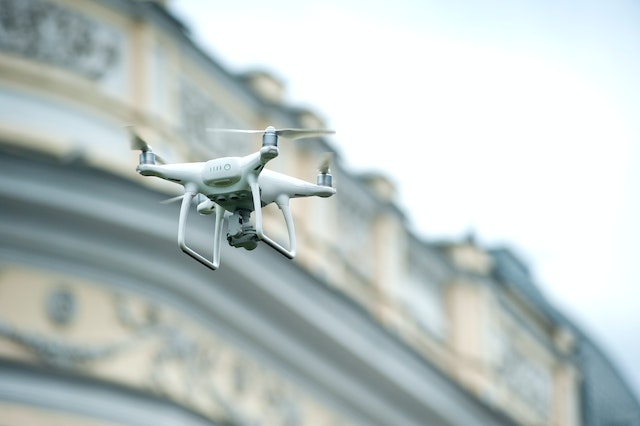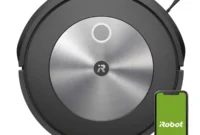Drones, also known as unmanned aerial vehicles (UAVs), have gained immense popularity in recent years. These remote-controlled flying machines have become a common sight, used for various purposes ranging from aerial photography to package delivery. However, with the increasing presence of drones, it has become essential for drone enthusiasts and operators to be aware of the laws and regulations governing their use. Understanding drone laws not only ensures compliance but also promotes safety and responsible drone operation.

1. Introduction
The world of drones is constantly evolving, and so are the laws surrounding their usage. Drone laws are established to ensure the safe integration of drones into the airspace and protect the privacy and security of individuals. These laws govern a wide range of aspects, including registration, licensing, flight restrictions, safety guidelines, and penalties for non-compliance. Let’s delve deeper into the importance of knowing and abiding by drone laws.
2. Importance of Drone Laws
Drone laws are crucial for maintaining order and safety in the skies. Unregulated drone operations can pose serious risks, such as mid-air collisions with manned aircraft or privacy infringements. By understanding and adhering to drone laws, operators can avoid accidents, respect others’ privacy, and contribute to the positive reputation of the drone community.
3. Overview of Drone Laws
Drone laws can vary depending on the jurisdiction. In the United States, drone regulations encompass both federal and state/local levels.
3.1 Federal Regulations
At the federal level, the Federal Aviation Administration (FAA) has established guidelines for drone operation. These regulations include registering drones with the FAA, obtaining a remote pilot certificate for commercial drone use, and adhering to specific flight restrictions and safety protocols.
3.2 State and Local Regulations
In addition to federal regulations, individual states and local authorities may impose their own drone laws. These laws may address specific concerns such as privacy, flying over public property, or restrictions on flying near sensitive areas like airports, schools, or government buildings. It is important for drone operators to familiarize themselves with both federal and local regulations to ensure compliance.
4. Registration and Licensing
To promote accountability and responsible drone use, registration and licensing requirements have been implemented.
4.1 Registering Your Drone
The FAA mandates the registration of drones that weigh more than 0.55 pounds (250 grams) and less than 55 pounds (25 kilograms). This registration process helps in identifying the drone and its operator, ensuring accountability in case of any incidents or violations.
4.2 Obtaining a Drone License
For individuals intending to use drones for commercial purposes, obtaining a remote pilot certificate is necessary. This involves passing a knowledge test administered by the FAA, which covers aeronautical concepts, airspace regulations, and operational safety guidelines.
5. Drone Flight Restrictions
Drone flight restrictions aim to prevent potential hazards and protect public safety. Understanding these restrictions is crucial for responsible drone operation.
5.1 No-Fly Zones
Certain areas, such as airports, military installations, and national parks, are designated as no-fly zones for drones. Flying in these restricted areas is strictly prohibited to avoid endangering manned aircraft operations or causing disturbances to sensitive ecosystems.
5.2 Height and Distance Limits
Drone laws often define maximum altitude and distance limits for drone flights. These limits ensure that drones operate within a safe range, minimizing the risk of collisions with other aircraft or violating privacy rights.
5.3 Privacy and Surveillance
Respecting privacy is paramount when operating drones. Laws surrounding drones address concerns related to capturing images or videos of individuals without consent, surveillance activities, and invasion of privacy. Operators must exercise caution and comply with applicable laws to maintain trust and privacy standards.
6. Safety Guidelines
To ensure safe drone operations, adherence to safety guidelines is essential. These guidelines provide a framework for mitigating risks and avoiding accidents.
6.1 Pre-flight Checklist
Before each flight, drone operators should conduct a pre-flight checklist. This checklist includes verifying the drone’s condition, checking battery levels, inspecting propellers, and ensuring the surrounding area is suitable for flight. Following these steps reduces the likelihood of equipment failure and promotes safe flying conditions.
6.2 Operating Procedures
Understanding proper operating procedures is crucial for drone operators. This includes maintaining visual line of sight with the drone, avoiding crowded areas, and flying responsibly in accordance with weather conditions and airspace regulations. Adhering to these procedures ensures safe and responsible drone operation.
7. Penalties for Violating Drone Laws
Violating drone laws can lead to serious consequences. Penalties may include fines, confiscation of equipment, suspension of licenses, or legal actions. It is essential for drone operators to be aware of the potential penalties associated with non-compliance and operate their drones within the confines of the law.
8. International Drone Laws
Drone laws are not limited to a single country. Various countries have implemented their own regulations governing drone operations. International travelers or drone operators operating in foreign jurisdictions should familiarize themselves with the specific drone laws of their destination to avoid legal issues.
9. Future of Drone Regulation
As the drone industry continues to grow, the regulatory landscape is expected to evolve. Advancements in technology, such as the development of drone detection systems and traffic management solutions, are being explored to ensure the safe integration of drones into the airspace. It is important for drone enthusiasts and operators to stay informed about emerging regulations and adapt to the changing requirements.
10. Conclusion
Knowing your drone laws is crucial for responsible and legal drone operation. By understanding and complying with regulations, operators can ensure safety, respect privacy, and contribute to the positive development of the drone industry. Remember to check and adhere to both federal and local regulations, conduct thorough pre-flight checks, and operate drones responsibly. By doing so, we can all enjoy the benefits of drone technology while minimizing risks and maintaining harmony in the skies.
FAQs:
- Are drone laws the same worldwide?
- Drone laws can vary from country to country. It is important to familiarize yourself with the specific drone regulations of the country you plan to operate in.
- Can I fly a drone in a national park?
- National parks often have restrictions on drone flights to protect the wildlife and maintain the serenity of the park. Make sure to check the regulations of the specific national park before flying your drone.
- What happens if I fly a drone in a no-fly zone?
- Flying a drone in a designated no-fly zone can result in serious consequences, including fines, confiscation of the drone, and legal action. Always respect no-fly zones to ensure safety and compliance with the law.
- Do I need a license to fly a drone for recreational purposes?
- In many countries, a license is not required for recreational drone flying. However, it is important to check the specific regulations of your country or region to determine if a license or registration is necessary.
- How can I stay updated on drone regulations?
- Stay informed by regularly checking official government websites, aviation authorities, and drone industry publications. These sources provide updates on new regulations and changes in existing drone laws.


